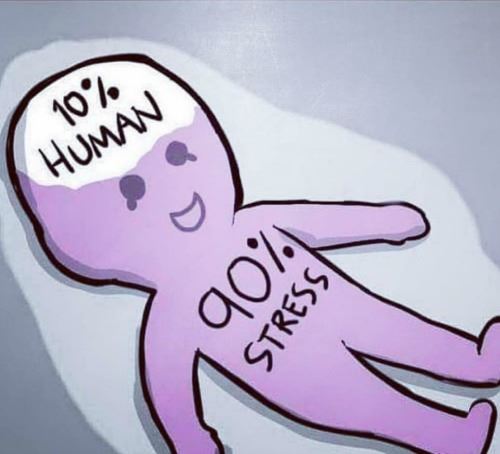Our 'Real Talk!' column is where we aim to tackle uncomfortable topics in optometry, head on.

You’re running late, the printer has stopped working, you’ve got a backlog of clinical records to finish and then...they enter. The ‘difficult' patient.
“It’s an emergency!”
“My old optometrist never charged me.”
“I always sleep in my lenses, I don’t have any problems.”
“Why are you asking me for my medications, you’re not a doctor.”
“Why is this taking so long?”
You’d be hard-pressed to find a definition of a ‘difficult’ patient, yet all of you have encountered at least one during our career. Patients are diverse and like all human beings, have good and bad days. Some of our patients have complex medical issues which affect the way they interact with us and some are just having a bad day. They can push you to the limit. Work would be a very unpleasant place if most patient interactions weren’t positive. Luckily, ‘difficult’ patients are few and far in between. Here are some tips to help you smooth out the bumps in patient interaction.
There are a few factors that can make a patient interaction challenging.
It can be the patients themselves: perhaps they are hostile, have unrealistic expectations and are uncooperative.
It could also be us as optometrists: personal factors such as personality clashes, if we're tired, angry or late can also contribute to a poor patient interaction. It is important to reflect on our own mood and stress levels.
It may also be the types of resources available to us at the time: are there enough support staff, adequate space and equipment and reasonable time expectations?
Identify you’re in the midst of a challenging interaction by being authentic and transparent
Identifying you’re in the midst of a challenging interaction is the first and most crucial step. Our reactions guides the tone and direction of the consultation. Our subconscious changes in body language can lead to a downward spiral. Rolling your eyes or shaking your head may feel justified, but remain calm and professional (even when you think you’re in the right). Early on, verbalise the difficulty that you’re having and avoid casting blame. For example, you can say “We both have different views about how we should address these concerns and it's causing some difficulty between us, do you agree?” Being honest, transparent and raising awareness of the 'difficult' situation can help build trust and open doors in working on an agreeable solution together.
Acknowledge their emotions and remain calm
Remaining calm will allow you to keep control and address the patient in a way that will defuse the situation. Upset patients may try to pull you into an argument. While you are completely entitled to voice your opinion, it’s important to do so respectfully. Acknowledge a patient’s emotional state. Have a willingness to understand the situation from their point of view and let them be heard. Reflective statements, such as “I can see this is upsetting to you,” and “I can understand why this made you upset” can identify the observed emotions of patients. Open communication is key in defusing difficult situations. These statements show the patient that it’s okay to talk about their concerns and fears and demonstrate that you care about them and they are important to you.
Have boundaries and be assertive
When it comes to difficult patients who make seemingly unreasonable demands, a useful approach is to set limits. This can be through company policy, for example, to enforce a policy for showing up late for appointments. Be firm in adhering to your clinical knowledge and professional management plan. Explain the consequences if compliance is an issue. Keep accurate records of the consultations and complaints they make to protect yourself.
You may also create a boundary by inviting the patient back into your consult room. This is a great way of separating your patient of interest with practice staff and bystander patients. This allows the patient to express their concerns privately and can allow you to contain and defuse the situation.
If the patient begins to become abusive, whether physically or emotionally, it is time to step back. Let them know their behaviour is unacceptable, discharge them from the situation and alert the other staff in your practice.
Breathe, debrief and self-reflect
After an unpleasant interaction with a difficult patient, it’s normal to feel upset, frustrated or angry. You may even feel a sense of relief knowing that the difficult situation has been dealt with. Regardless, take a moment to have a breather, so your whole day isn’t ruined. Take a deep, cleansing breath and as you exhale, let out all the stress and anger. You may find some relief if you debrief with colleagues after a difficult consultation, whether it's a phone call, text message or in person. Not all days in Optometry are easy, but you have the strength and skill to handle whatever difficulties come your way. Acknowledge that you have experienced a difficult situation. It's important to digest the experience and reflect on how the situation occurred, how things could have been prevented or could have been managed better and how things can be changed so that difficult situations like the one you experienced do not occur again.
Reward yourself after handling a difficult situation
No one likes dealing with 'difficult' situation, but someone has to. And it's important that you give yourself a pat on the back and reward yourself for taking that courageous step forward and defusing the situation. Sometimes having a little treat from your secret little stash of chocolates, sweets or cookies may even empower you to take on more difficult situations ;).
And if you ever get stuck, have a chat with one of your friendly YO team members and we'll gladly help point you in the right direction.